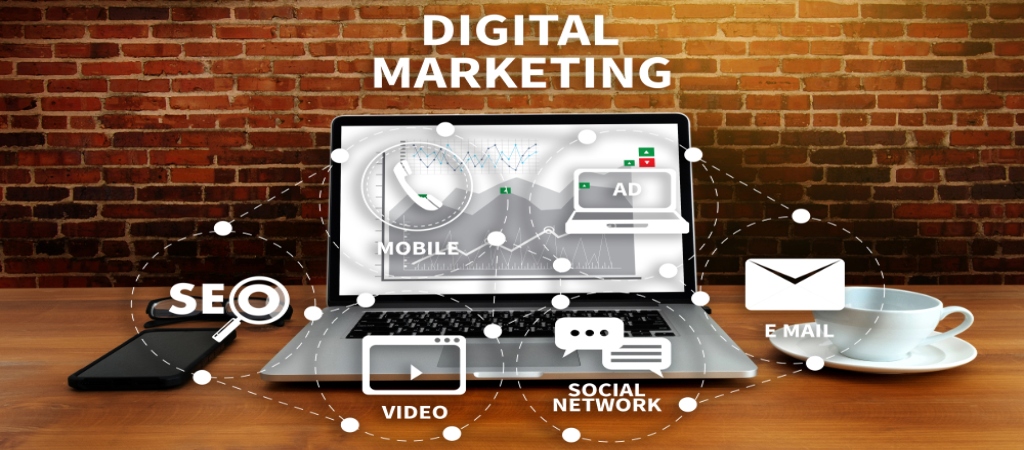Affiliate marketing and influencer marketing are powerful tools brands can use to grow their businesses. Both these marketing strategies work by connecting brands with important people in the industry who can help them boost brand visibility and brand awareness. Using influential people to spread the word about your products and services increases your brand’s customer conversion rate.
As a business, you need to figure out which of the two marketing strategies your business needs. To do so, you need a comprehensive understanding of the difference between affiliate marketing and influencer marketing. Promoting your brand with the right marketing strategy at the right time for the right reasons guarantees a reasonable return on investment. This is because you’ll be targeting your audience with tactics they’re likely to respond positively to.

You’ve probably heard a lot about influencer marketing because many brands leverage social media influencers because of their large following on different platforms. Social media platforms give brands the opportunity to position their offerings in front of prospective customers. But what about affiliate marketing? Even though it’s been around for a long while, it isn’t nearly as widely talked about as influencer marketing. For this reason, you might be wondering if it’s a relevant digital marketing strategy.
The fact is, affiliate and influencer marketing are equally effective ways to educate your target audience about the products and services you offer. Continue reading to learn their differences and how you can use each one to scale your business.
How Influencer Marketing Works
Influencer marketing involves partnering with authoritative personalities in your industry and leveraging their massive following on social platforms to promote your products and services. This form of marketing works best when the influencer you partner with is knowledgeable in your niche because, this way, the followers can easily associate them with your brand.
Influencers can be authors, bloggers, journalists, or even consultants who have the following qualifications:
- A solid online presence and undeniable influence over potential customers
- A significant website audience and/or impressive social media footprint
- Ability to convey strong brand affinity
- Credible reputation and a trusting relationship with their followers
- Perceived expert in their niche of specialization
Influencer marketing is perhaps the quickest brand promotion strategy in today’s social media era. The strategy guarantees to give your brand exposure in a short time span because of how many people log onto social media platforms every day.
Another reason why influencer marketing is so effective is that it’s a personalized form of brand promotion that leverages a personality’s influence over people to sell products and services. People who follow social media influencers trust their word; an influencer approving your product communicates to their followers that they can trust your brand.
Social media influencers specialize in brand promotion on the platform where they have the most followers. Whether it is YouTube, Instagram, Twitter, or Facebook, you can use an influencer to penetrate new market segments. Matching the influencers, you choose to partner with your budget and growth objectives allows you to have a healthy working relationship that yields fruitful results.
Is It Modern-Day Word-of-Mouth Marketing?

Influencer marketing has been referred to as modern-day word-of-mouth because approving brands can be likened to someone recommending a product or service to family and friends. The only difference between word-of-mouth marketing and influencer marketing is that the former involves one-on-one interaction while the latter uses a strong online presence to influence social media users.
Word-of-mouth morphed into influencer marketing as the world got digitized, and it’s just as effective as what it used to be because social media platforms have billions of users who log in and scroll through their feeds every day. In fact, influencer marketing is way better than word-of-mouth because authoritative personalities’ influence reaches beyond the people they know personally.
In addition, modern-day word-of-mouth marketing is a win-win partnership, while in the past, brands were just lucky that their customers liked their offerings enough to recommend them to friends and family. Today, in order to benefit from an influencer’s following, you have to agree to their terms of payment because they don’t promote brands for free.
What are the Benefits of Engaging in Influencer Marketing?

The main objective of engaging in influencer marketing is to boost brand exposure. Here are helpful tactics your brand should consider using:
Increase number of followers
Focusing your influencer marketing campaign on increasing the number of your followers on social media enables you to have a wide reach and penetrate new markets. Leveraging your influencers’ followers drives traffic to your brand’s social media pages, allowing you to achieve this growth objective.
Boost Social Media Engagement
Aside from having more social media users viewing your pages, you should also make an effort to boost engagement. Metrics that help you measure social media engagement include comments, link clicks, shares, post views and likes. Paying attention to your brand’s performance on social media gives you ideas on what you can do to improve your influencer marketing campaigns.
Increase Website Visitors
Apart from directing traffic to your social media pages, influencer marketing can also help you increase website visitors. Since your website is the business’ virtual representative, you should focus your marketing efforts on increasing your click-through rate.
Maximize Lead Generation
The ultimate goal of influencer marketing is to earn more customers, and to do so, you first have to generate leads. Influencer marketing helps you nurture qualified leads until they’re ready to become regular customers.
How Affiliate Marketing Works

The principle behind affiliate marketing is featuring your products and services on other websites to tap into their reading audience. Promoting your offerings on websites other than yours ensures that more people interact with your brand than if you were creating content for your website alone. Increasing your brand’s visibility enables leads to easily access your business to find out more about your offerings and if they would be interested in doing business with you.
Before launching affiliate marketing campaigns, ensure you first optimizing your website’s mobile design because most people today use their mobile phones to browse the internet. When leads see your content on other sites and are inclined to click on the link that leads to your site, they’re hoping to arrive at a value-adding website. Getting your house in order ensures leads don’t fall through the cracks because they could not load your website on their mobile devices.
Like influencer marketing, affiliate marketing is a win-win partnership where both parties benefit. While you gain leads, your affiliate marketing website earns a percentage of every sale successfully made through the products featured on their platform. Unlike influencer marketing which is promotion-based, affiliate marketing is advertising inclined since it involves increasing sales.
For your affiliate marketing campaigns to be effective, you need to choose affiliate websites whose brand message aligns with yours. People are more likely to purchase your product if it’s featured on a website whose content corresponds with your offerings.
What are the Top Marketing Strategies for Affiliate Marketing?
Since affiliate marketing is like a sales strategy, your brand should figure out the best way to make the most sales. So, let’s take a look at the top marketing strategies for affiliate marketing:
Choose Affiliates Carefully
Like in the case of influencer marketing, you need to choose an affiliate marketing partner with a well-established audience. This is how you guarantee more sales because more affiliate website visitors translate to more potential leads.
Aside from their audience, you should also consider their proficiency in brand presentation because how they portray your business determines how potential leads will perceive your brand. Before partnering with an affiliate marketing website, ensure they understand what you’re looking to benefit from the partnership.
Remember to be upfront about how much you’re willing to offer as commission for every sale their website helps you make. Establishing a transparent affiliate relationship gives you peace of mind knowing that your brand is in safe hands.
Here are additional points to note as you choose an affiliate partner:
- the affiliate should have a strong rapport with their audience. Manifestations of this include many shares and positive comments.
- The affiliate should have a high ranking on search engine result pages (SERPs)
- The content on the affiliate website should be relevant to your industry
- The affiliate partner should be compatible with your market niche.
Build a Robust Affiliate Network
For affiliate marketing to work in your favor, you need to build a robust affiliate network that acts as your sales team separate from your in-house sales and marketing department. A single affiliate partner is not enough to boost your sales enough for you to scale the business. Therefore, affiliate marketing should be a continuous endeavor to expand your reach to new market segments.
Optimize Product Page
While the main objective of affiliate marketing is to drive sales, it’s not as plain and simple as that. Experienced marketers don’t rely solely on their affiliates; your partner should provide exceptional customer experience to encourage readers to click on your product links.
You, on the other hand, should optimize your product pages so that when new customers get directed to your website, they have an easy time browsing your catalogue and making payments for any purchases they’ve decided to make. Appealing product pages functional purchase features help you drive consistent revenue.
Which Parties are Involved in Affiliate Marketing Campaigns?
Since affiliate marketing is a way for businesses to spread the responsibility of product marketing, it leverages various individuals’ abilities to develop a hybrid marketing strategy that’s effective and successful. Creating a sales and marketing team across parties requires three main parties, which we shall discuss below.
1. Seller and Product Creators
As a large enterprise or a solo entrepreneur, you are a seller, merchant, product creator or vendor with products you want to market. Your product can be tangible goods or services that improve people’s lifestyles. You’re the brand looking for assistance in finding customers who are interested in your offerings.
As a seller, you can choose to be actively involved in marketing even as you seek out affiliate marketers to offer a helping hand for a percentage of your profits. You can also decide to leave the heavy lifting to your affiliate partners, trusting that they’ll do what it takes to get your products to the right customers. Affiliate marketing helps your eCommerce business reach new audiences so you can earn more revenue to scale up.
2. The Affiliate or Publisher
Next up is the affiliate partner, also known as the publisher, who will be responsible for marketing your products to your target audience in an appealing manner. Affiliate individuals or companies use their websites to promote your offerings and persuade qualified customers to make purchases. You need an affiliate marketer who knows how to persuade their audience that your products would be value-adding acquisitions.
Affiliate marketers are motivated to promote your products because they get a percentage commission for every successful sale. Since affiliate marketers have to adhere to a specific audience and cater to their interests, you should partner with a publisher within your niche. This will give your affiliate partner an easy time attracting customers who are likely to act on the promotions.
3. The Consumer
Whether consumers know it or not, their purchases are the drivers for affiliate marketing; without any sales, your affiliate marketing campaigns would not serve their purpose. Your affiliate partners share your offerings on their websites and on social media to place them in front of qualified buyers.
When customers make regular purchases, it is a win for both the seller and the publisher because the profits are shared. Sometimes, affiliate marketers are upfront about adding affiliate links to their websites, and other times; the buyers are completely unaware of the affiliate marketing infrastructure behind their purchase.
Either way, a buyer doesn’t have to pay more for a product if they use an affiliate link because the products’ retail prices are inclusive of the affiliate marketer’s share of the profit. Affiliate marketing infrastructure is set up in such a way that customers’ normal buying process remains unaffected.
How Should You Pay Your Affiliate Marketers?

Affiliate marketers’ motivation to do what they do because they don’t have to be product sellers to make money. If you’re looking to increase your income online, you’ve got to pay them to help you do that. Well, we’ve already established that they earn a percentage of your profits but how exactly does this work?
The reality is, customers, don’t have to buy your products for you to pay your affiliate marketer. As long as they’ve successfully connected you to a new market, their job is done. You and your partner will choose a payment program to use from one of these three discussed below:
1. Pay Per Sale
This first payment method is the most common paradigm in affiliate partnerships. If you settle for this program, you’ll be required to pay your affiliate marketer a percentage of products’ sale prices after customers make purchases.
In other words, your affiliate marketer’s strategies have to be strong enough to convince customers to actually buy something. Your affiliate marketer is only compensated once you see results. It’s a perfect program for a small business that’s still finding its feet because it assures you a return on your investment.
2. Pay Per Lead
The second payment is a little complex and not as straightforward as the first one. Paying per lead means your affiliate marketer gets paid on their contribution in converting leads. In simple terms, each time a potential customer clicks on your affiliate link and completes the desired action on your website, you have to pay your affiliate marketer a percentage commission.
With the pay-per-lead program, your customers don’t have to make a purchase of tangible products. Maybe you are selling pieces of software you want more people to subscribe to or you’re a game developer who wants more gamers to interact with your creations.
Completed actions come in form of:
- Filling out a contact form
- Signing up for a product trial
- Subscribing to a newsletter
- Purchasing an ebook
- Downloading software
- Completing a survey
3. Pay Per Click
The last payment method is when you pay your affiliate marketer every time a customer clicks on the affiliate link that redirects them to your website. According to this program, your affiliate marketer’s job is to engage prospective customers to the extent that they’re willing to explore your website. When they move from the affiliate site to your business website, the affiliate marketer’s job is done. In other words, your affiliate marketer helps you increase website traffic.
Wrapping Up
Now that you know the difference between affiliate marketing and influencer marketing, you can use both of them the right way at the right time to achieve your growth objectives. Ensure you take your time when choosing affiliate or influencing partners because they determine if your marketing campaigns will be a success.
About the Author
Timothy Miller is a proficient writer working with Mycustomessay.com to help students complete their assignments in record time. He’s also passionate about digital marketing and contributes to online magazines that teach businesses how to promote their brands.


